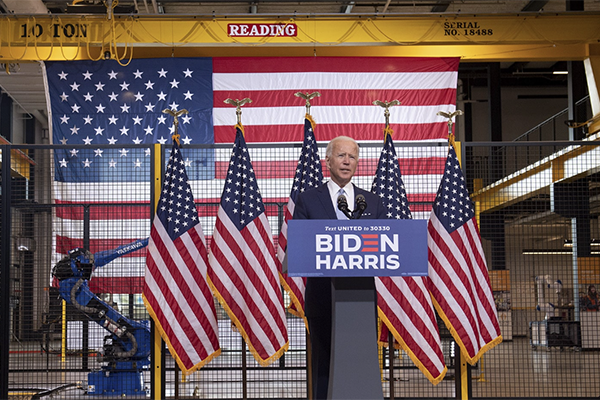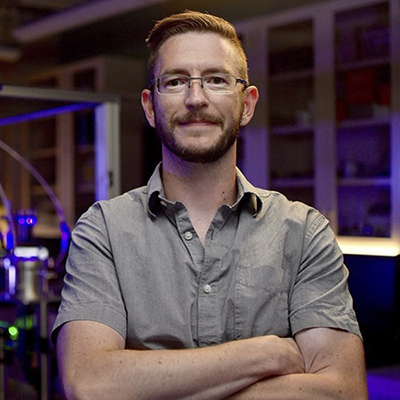The next four years of climate and environmental policy
CMU experts discuss what needs to be addressed by the new administration.
Jason Maderer
Feb 11, 2021

Source: Photo by SAUL LOEB/AFP via Getty Images
President Joe Biden speaking at Carnegie Mellon University’s Mill 19 facility in August of 2020.
In his first weeks in the Oval Office, President Joe Biden signaled that climate change is a national priority. On Inauguration Day, he rejoined the Paris Agreement and halted the controversial Keystone XL pipeline that would have carried oil from Canada to the Gulf Coast. On Jan. 27, Biden signed an executive order that officially elevates climate as an essential focus of U.S. foreign policy and national security. The order also pauses new oil and natural gas leases on public lands or offshore waters.
Across the Carnegie Mellon University campus, experts study climate, the environment and energy, as well as the policies that shape each of these sectors. What are the most critical issues that need to be addressed in the next four years? Below are CAPS faculty who provided expert opinions. Read the original article for all opinions.

Neil Donahue
Carbon dioxide essentially lives forever—the climate warming from emissions lasts for about 100,000 years. This is why decarbonizing to net zero fossil carbon emissions is essential. We have about 30 years to bring the entire world to net zero. This means electrifying transport (cars and rail) and extending transmission and storage.
Particle pollution, much of it from fossil combustion, kills millions worldwide, so decarbonizing will have great pollution benefits too. However, this will be incredibly disruptive. It is crucial that we work to ensure environmental and climate justice, locally and worldwide, with sustainable energy development in the global south.
— Neil Donahue
Thomas Lord University Professor in Chemistry
Departments of Chemical Engineering/Engineering and Public Policy
College of Engineering and Mellon College of Science

Ryan Sullivan
The United States must swiftly transition from being an obstacle to a global leader by drastically reducing our addictive dependence on fossil fuels. We are already seeing the effects of climate change (flooding, droughts, extensive wildfires and disease proliferation) and have baked in significant additional warming from our greenhouse gas emissions. Every delay or obfuscation in aggressively transitioning to sustainable renewable energy sources only makes the environmental crisis worse. Regulation, enforcement and economic incentives that promote already existing technology are the most immediately effective approaches. New technological innovations will help, but we cannot afford to wait for them.
Climate change affects every aspect of the planet and our society (food and agriculture, disease and health, environmental justice, air and water quality, national security, demographics, natural resources, industry, transportation, etc.). We must comprehensively study the many effects of climate change on interwoven environmental systems to fully understand their multi-faceted impacts, and how to best adapt to the global environmental change we have inflicted.
— Ryan Sullivan
Associate Professor
Departments of Chemistry/Mechanical Engineering
Mellon College of Science and College of Engineering